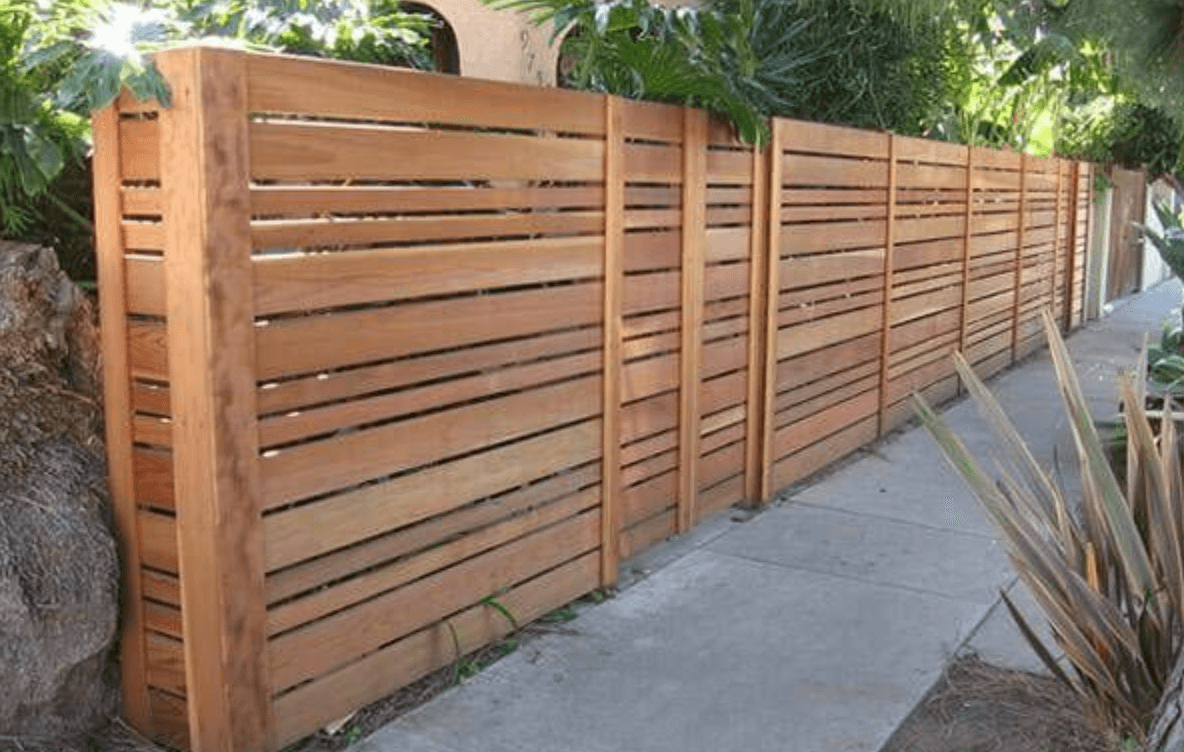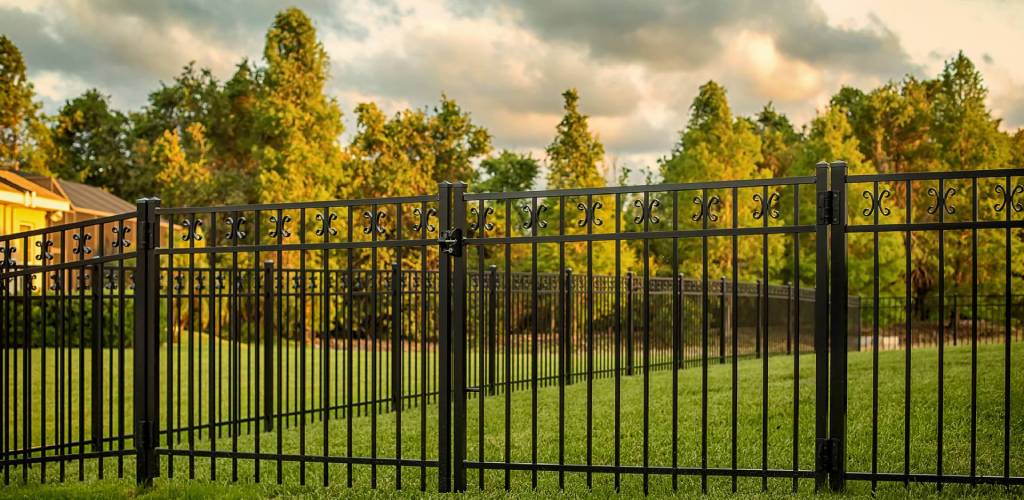All Categories
Featured

As sustainability becomes a progressively essential consideration for property owners, more individuals are turning to environmentally friendly fencing products. Whether you're constructing a fencing for personal privacy, safety and security, or aesthetic purposes, selecting products that reduce environmental impact is an excellent way to add to a much healthier earth. Below's a check out the leading eco-friendly secure fencing materials readily available today and their benefits.
- Bamboo Fence: Eco-friendly and fast-growing. Bamboo is among one of the most lasting fence products on the marketplace. Unlike typical timber, bamboo is incredibly fast-growing, which suggests it can be harvested without depleting forests. This makes it a very sustainable resource, with some species expanding up to 3 feet in a single day.
Ecological Advantages: Bamboo soaks up a lot more carbon dioxide than lots of other plants, helping to balance out greenhouse gases. Its quick development rate suggests it can be collected frequently, making it a renewable product. Longevity: Bamboo fences are normally resistant to parasites and decay, especially when properly dealt with, lowering the requirement for chemical treatments. Aesthetic Charm: Bamboo offers an one-of-a-kind, natural look that enhances both modern-day and typical landscaping designs. However, while bamboo is an excellent option, it is essential to make certain that the bamboo used is responsibly sourced to avoid adding to environmental degradation.
- Recycled Metal Fencing: Durable and Recyclable. Recycled steel fencing, such as aluminum or steel, provides an environment-friendly choice to conventional timber fencings. These metals are typically made from recycled products, reducing the demand for new mining and the environmental influence connected with extracting resources.

Ecological Advantages: Metals like light weight aluminum and steel are 100% recyclable, meaning they can be reused and repurposed forever without losing top quality. Longevity: Metal fencings are extremely long lasting, immune to weather, pests, and use, making them a resilient selection that doesn't need to be changed often. Reduced Upkeep: Recycled metal fencings call for minimal maintenance and do not need to be repainted or sealed consistently, minimizing the need for added chemicals. The main disadvantage is that steel fencings might not provide the very same personal privacy as timber or plastic choices, as they can have voids depending on the design.
- Recycled Timber Secure Fencing: Sustainable and All-natural. For those that love the classic appearance of timber however want a green choice, recycled wood fence is an exceptional selection. This product is made from redeemed timber from old buildings, pallets, or also furnishings, drawing away these products from garbage dumps.
Environmental Advantages: Making use of recycled wood protects against the demand to reduce down new trees, helping to lower and preserve woodlands deforestation. Visual Allure: Recycled wood uses a rustic, natural look and can be tailored to match any home style. Sustainability: Because it is sourced from existing wood items, recycled timber does not need new processing, which minimizes power intake and carbon discharges. While recycled wood fencings are a green option, they may need even more maintenance with time than metal or bamboo fences, as wood can be prone to decay and bugs if not properly dealt with.

- Living Fencings: All-natural and Eco-friendly. Living fences, which are made from dense growings like trees, shrubs, or bushes, provide a eco-friendly and totally natural alternative to traditional fencing products. These fencings not just give personal privacy however additionally boost your garden with lovely greenery.
Ecological Advantages: Living fencings can absorb carbon dioxide, provide environment for wild animals, and enhance air top quality. Noise Reduction: Dense growings can function as all-natural sound barriers, lowering website traffic sound or various other unwanted noises. Aesthetic Charm: They add a soft, natural visual to any type of residential or commercial property and can be tailored to fit any type of design. While living fences are green, they do need normal upkeep such as trimming, watering, and often pest control.
- Hemp Secure Fencing: Eco-friendly and Strong. Hemp is an additional lasting material that has made its method right into the fencing market. Hemp fencings are made from strong hemp fibers that are woven with each other to create sturdy and green panels.
Ecological Advantages: Hemp grows swiftly and needs marginal water, making it a resource-efficient plant. When no longer required, the material is eco-friendly and can be composted. Stamina and Longevity: Hemp fence is surprisingly strong and weather-resistant, making it appropriate for lots of environments. Sustainability: Hemp farming needs less chemicals and plant foods than conventional crops, making it an eco responsible alternative. However, hemp fencing might not be as extensively offered as other materials, depending upon your place.
Verdict: Sustainable Options for Every Need. Picking environmentally friendly fence products is a great way to decrease your environmental impact while still achieving the personal privacy, safety, and visual you desire. From fast-growing bamboo to recycled wood and metal, there are a selection of lasting choices that can aid you develop a beautiful, useful fencing while sustaining a healthier planet. By considering elements such as sturdiness, upkeep, and environmental influence, you can select the ideal green secure fencing material for your requirements and lifestyle.
Latest Posts
Check Out Affordable Auto Repairs with Montclare’s Exclusive Service Specials
Published en
1 min read
Why Regular Vehicle Maintenance at Montclare Auto Repair Reduces Costs
Published en
1 min read
Uncover Top Auto Repair Services from Montclare Auto Repair – Expert Care for Your Vehicle
Published en
1 min read
More
Latest Posts
Check Out Affordable Auto Repairs with Montclare’s Exclusive Service Specials
Published May 29, 25
1 min read
Why Regular Vehicle Maintenance at Montclare Auto Repair Reduces Costs
Published May 27, 25
1 min read
Uncover Top Auto Repair Services from Montclare Auto Repair – Expert Care for Your Vehicle
Published May 27, 25
1 min read